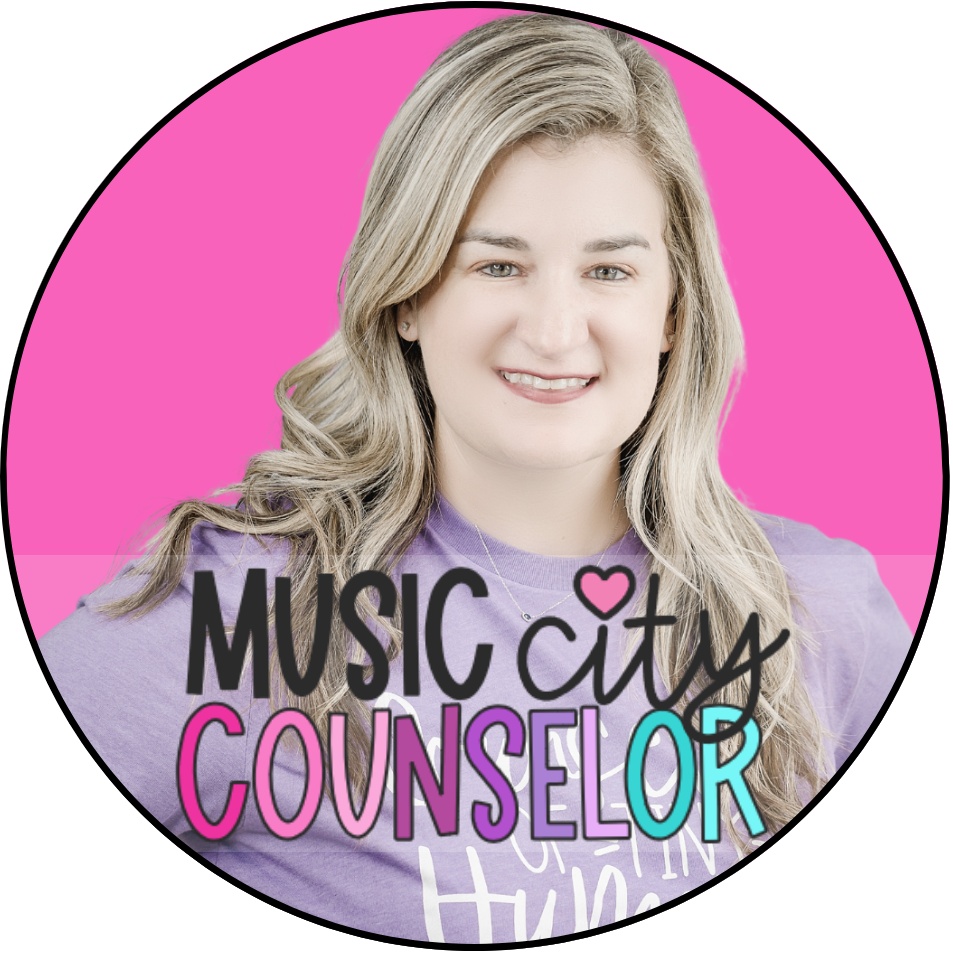
Hey y’all! Thanks so much for stopping by. My name is Laura and I am an Elementary School Counselor turned Curriculum Writer. At my precious school in Nashville, TN, 97% of my students were living in …
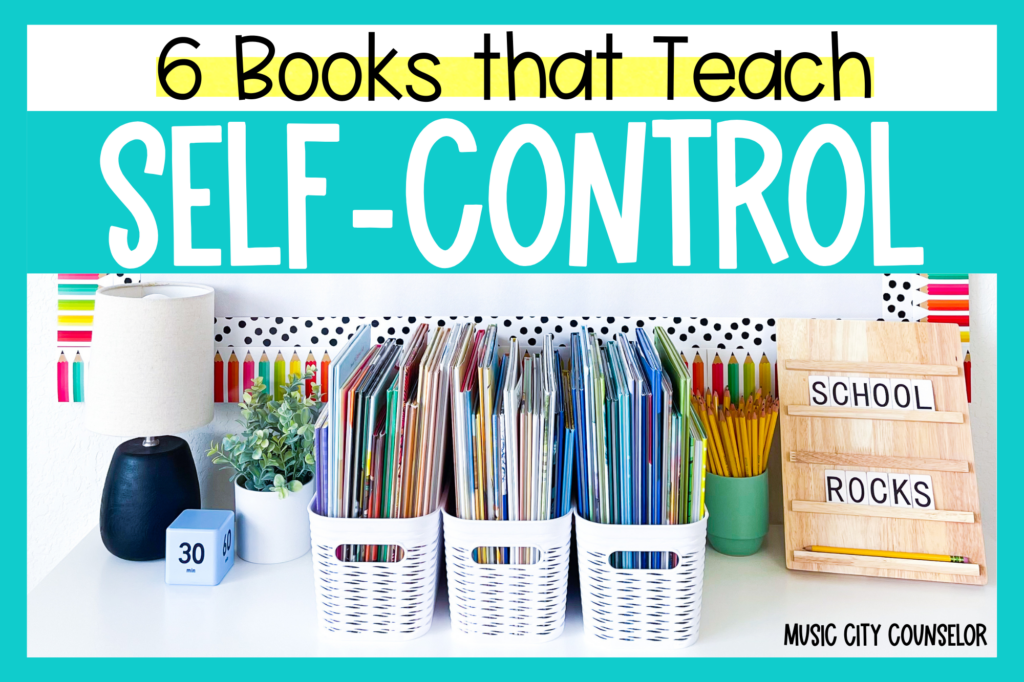
As elementary school counselors, our job is to equip students with essential social-emotional skills that serve them in school and beyond. The growth of self-control is a cornerstone of early childhood development, and storybooks are my favorite way to introduce it! Check out these 6 must-have books that teach self-control:
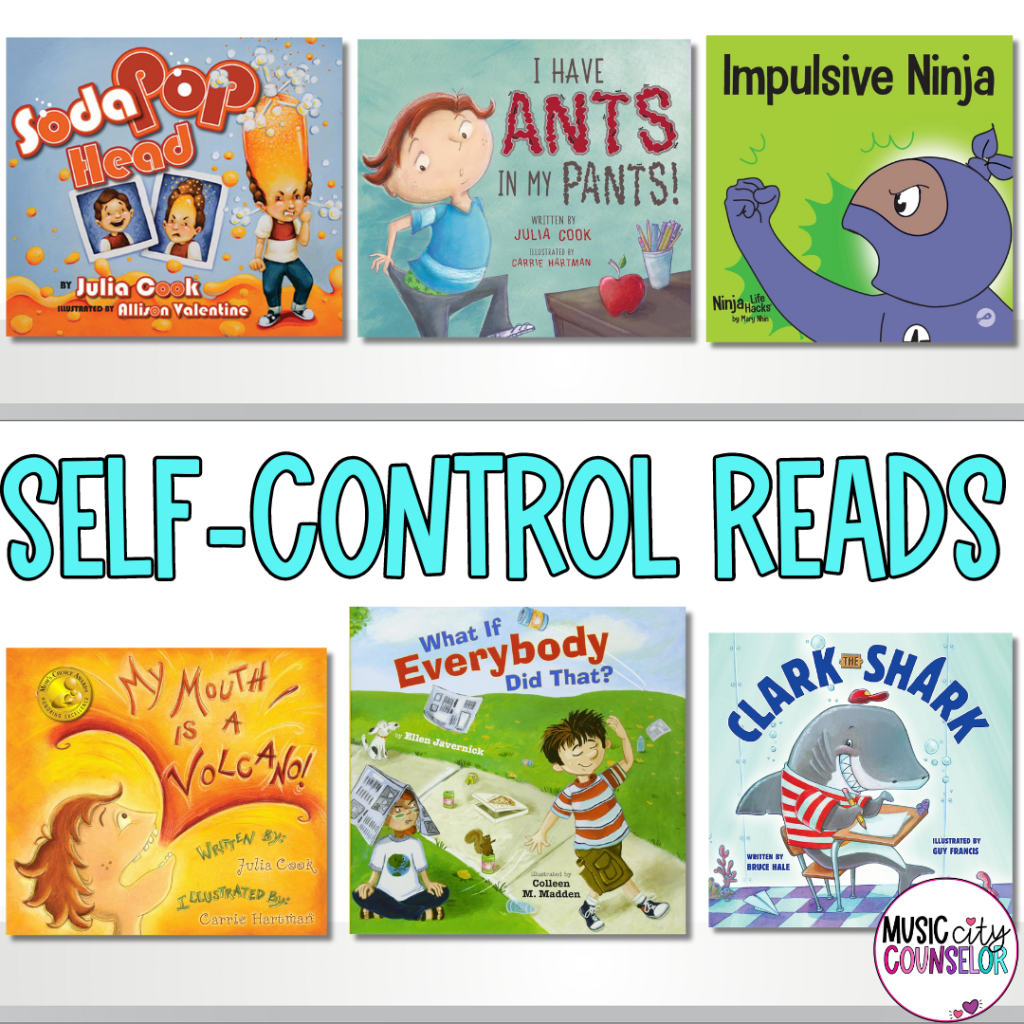
Before we dive into story book reviews and a couple of lessons to go along with them, let’s review the basics of teaching self-control.

Self-control is the ability to regulate one’s thoughts, emotions, and behaviors.
It involves managing impulses, delaying gratification, and making thoughtful decisions. Developing self-control helps students navigate big feelings, deal with frustration, and interact with others around them in positive and life-giving ways.
This SEL skill is difficult for many adults to manage and definitely doesn’t come naturally for most elementary-aged children.
As we teach self-control, students benefit through greater:
While students progress through their elementary years, they continue to encounter new situations that require greater self-control than before, so refreshers from us are always helpful!
For more information, resources, and activity ideas that teach self-control, check out my blog post!
Children’s books about self-control make learning relatable and memorable for students. Check out these 5 favorites and add them to your counseling library this year:
(Amazon Affiliate Links)

Clark the Shark really loves life! Unfortunately, his enthusiasm often results in him running inside the school, crashing all around the classroom, and being rowdy at recess. His big behaviors and lack of boundaries cause other students to avoid him. Through fun rhymes, Clark’s teacher helps him learn easy ways to tone things down and show self-control – while still having shark-sized fun!
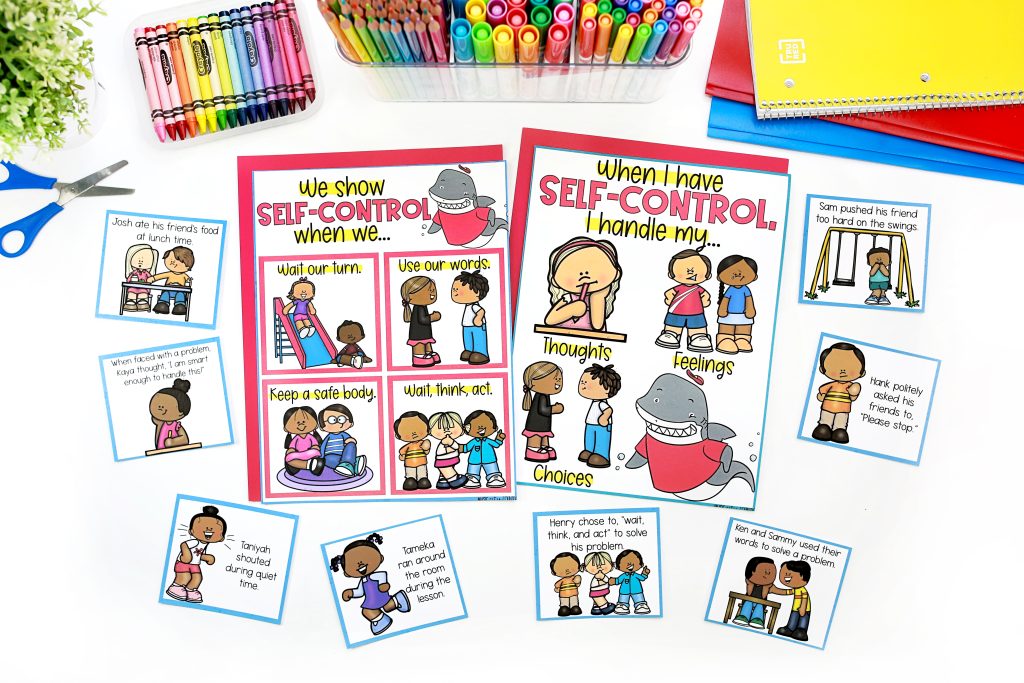
“Clark the Shark” is my absolute #1, go-to book for teaching self-control, and I love it so much that I created a companion lesson to go along with it! My favorite part of this resource is the “in control” vs. “out of control” choices sorting game. It’s perfect for individual counseling, small groups, and classroom lessons.
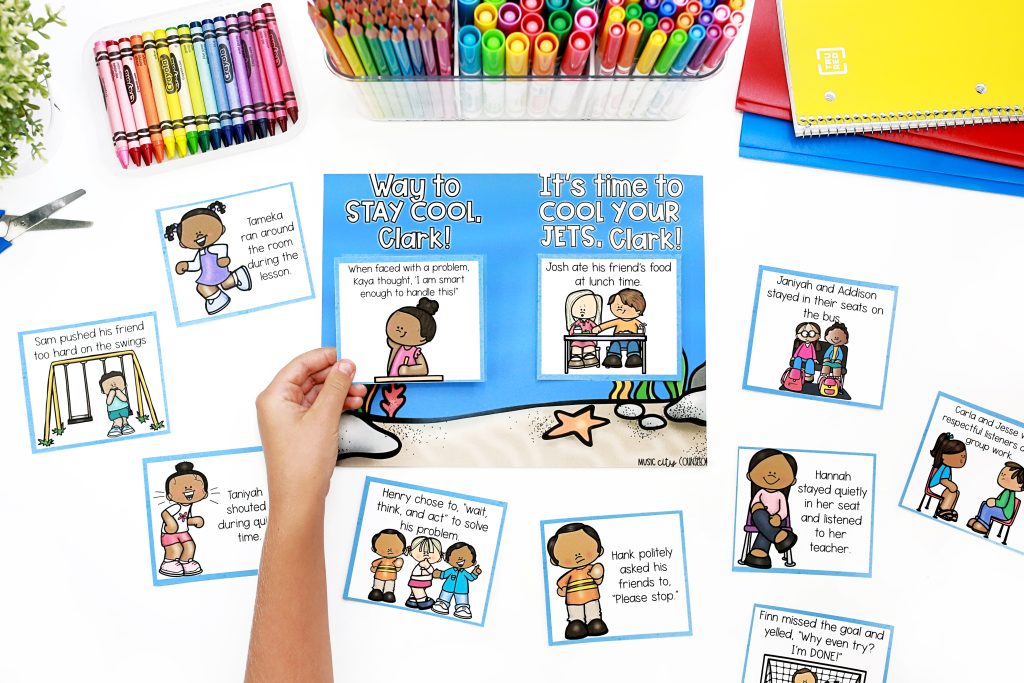

In this book, kids learn about the consequences of their behaviors and how they impact others. The main character is a young boy who continues doing things that he’s told not to do. By thinking “What if everybody did that?”, the boy starts to realize that his poor choices can lead to undesirable outcomes. Some of the situations are very realistic like “What if everybody dropped one soda can out the window?” while others are purely humorous to keep children’s attention:
This book is a great tool for teaching self-control, good citizenship, responsibility, and about being a part of a community!

“The Impulsive Ninja” is a super fun book (I love this whole series!) that teaches children how to control their impulses at home and school!
In this story, the Impulse Ninja learns to use his “power to pause” by stopping to think before acting. Students learn alternative ways to react to stress and show patience when things feel frustrating or overwhelming. Many relatable examples are included in this book to help students understand how to use self-control in their lives.

In this book about self-control, Louis is always interrupting! He believes all his thoughts are important and should be spoken (and heard!). His words grumble in his tummy, wiggle on his tongue, and finally ERUPT out of his mouth. When other people start to interrupt Louis, he learns the importance of waiting his turn to talk.
This book is a great resource to help students learn about perspective-taking, too!

Lester is usually a pretty happy boy, but when things don’t go his way, he blows! Everyone calls him “Soda Pop Head.” His reactions are big and so unpredictable. Lester’s dad comes to his rescue and teaches him ways to manage his anger and stress. He learns coping strategies like taking deep breaths, relaxing his muscles, eating the right foods, and more. The problem-solving strategies in this book are easy to apply for children to use at home and at school when things just feel “too much”.
“Soda Pop Head” is another one of my all-time favorite books, and this companion lesson that I created is perfect to use with it! It reviews the main concepts of the story and teaches students 13 coping skills to manage anger and big feelings. I love using it with individuals, small groups, and in lessons.

Beyond the explicit instruction you’ll provide by using books that teach self-control, you can support students in learning this important SEL skill in other meaningful ways, too!
As you intentionally model self-control throughout your day, your students WILL notice!
Reflection is another helpful tool to have in your counseling toolkit! Use discussion questions, small group interventions, and even reflective games to aid students in processing how they are doing in regards to choosing and showing self-control.
Incorporating these 5 books and strategies that teach self-control is sure to make teaching and supporting your students easier this year. You can rest assured that these books and their accompanying resources will help your students understand and show self-control as they face challenges of their own and interact with others.
Click “add to cart” right away to have these favorites in your counseling library as soon as possible!

| Cookie | Duration | Description |
|---|---|---|
| cookielawinfo-checkbox-analytics | 11 months | This cookie is set by GDPR Cookie Consent plugin. The cookie is used to store the user consent for the cookies in the category "Analytics". |
| cookielawinfo-checkbox-functional | 11 months | The cookie is set by GDPR cookie consent to record the user consent for the cookies in the category "Functional". |
| cookielawinfo-checkbox-necessary | 11 months | This cookie is set by GDPR Cookie Consent plugin. The cookies is used to store the user consent for the cookies in the category "Necessary". |
| cookielawinfo-checkbox-others | 11 months | This cookie is set by GDPR Cookie Consent plugin. The cookie is used to store the user consent for the cookies in the category "Other. |
| cookielawinfo-checkbox-performance | 11 months | This cookie is set by GDPR Cookie Consent plugin. The cookie is used to store the user consent for the cookies in the category "Performance". |
| viewed_cookie_policy | 11 months | The cookie is set by the GDPR Cookie Consent plugin and is used to store whether or not user has consented to the use of cookies. It does not store any personal data. |